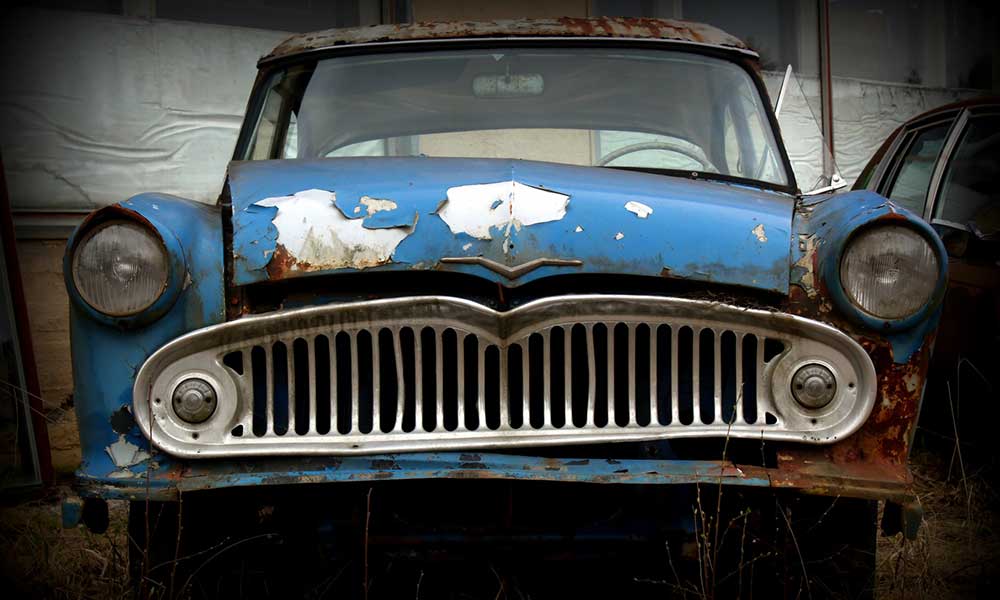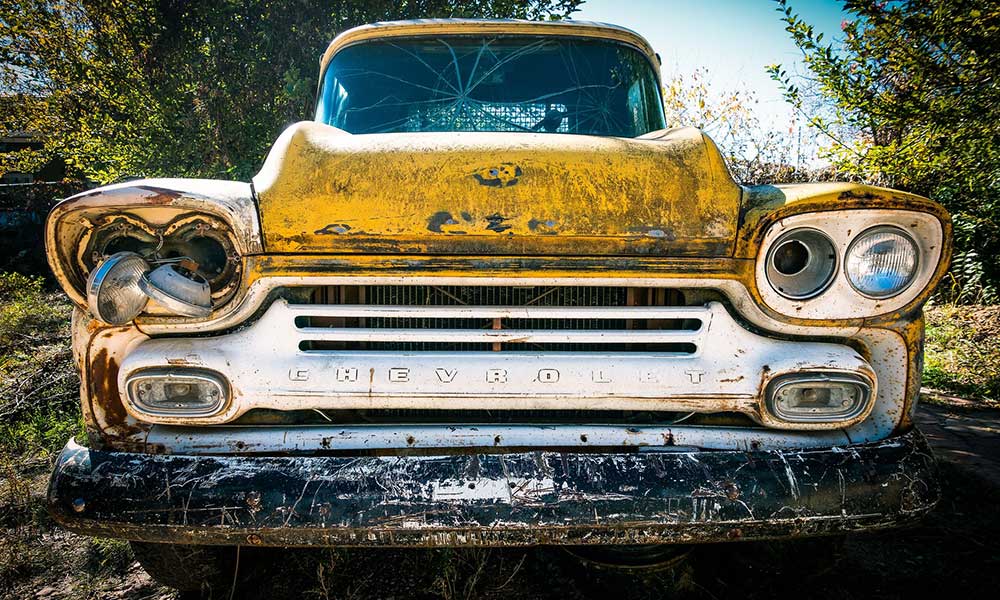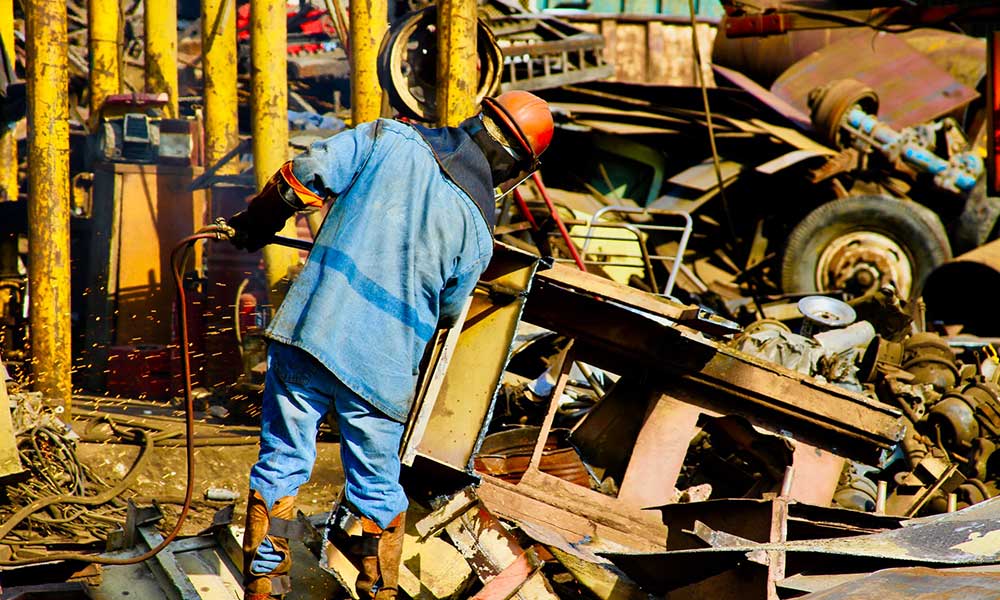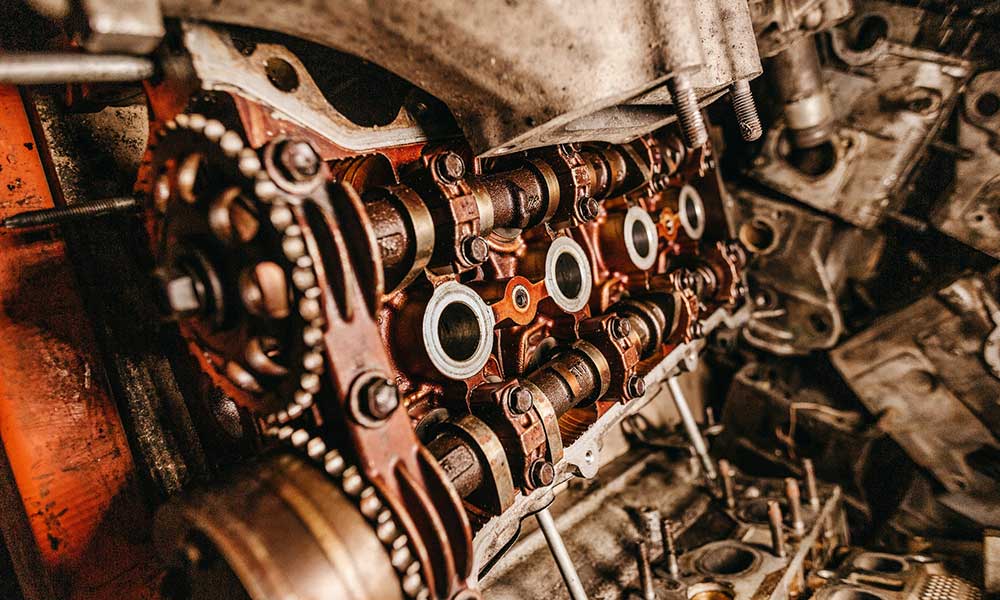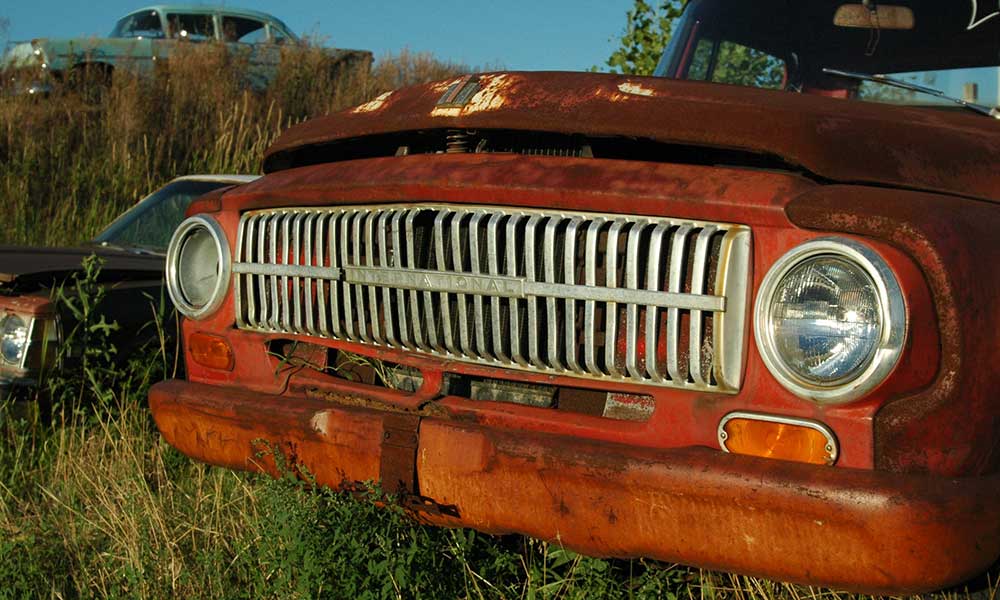Has your car been totaled, and do you want to keep the vehicle? As a Colorado resident, there are specific steps you must follow and forms you need to submit to your local Colorado Department of Revenue (CO DOR) branch or the CO Department of Motor Vehicles (CO DMV), a subsidiary of the CO DOR.
Keeping Your Totaled Car in Colorado
If you want to keep your totaled Colorado car, you must complete a few steps and make sure you have the proper paperwork.
Colorado Salvage Title Requirements
If you’re keeping your salvage car, we’ll assume you want to drive it again at some point. To do so, you’ll need to get it titled. You must obtain a Colorado salvage title before you sell your salvage car within 60 days of purchasing a salvage car and having the title transferred to you or after your auto insurance provider settles your claim if you’re choosing to keep the vehicle.
To get a Colorado salvage title, you will need the following information:
- Your legal name as it appears on your ID card and your address
- Cause/reason for damage
- Your signature and verification
- Vehicle identification number (VIN), model, make, year, and color of the vehicle
- Date of purchase
- Date of damage
- Signature of a witness
- Signatures of both vehicle owners (if there is joint ownership)
Insurance Considerations
If your car is deemed totaled by your auto insurance provider, you can accept a full or partial settlement.
Full Settlements
In a full auto insurance settlement, you’ll need to sign the car over to your auto insurance company, and they will pay you the full amount of the car’s worth, minus depreciation. You can use this money to replace the vehicle with the same make and model of the totaled car.
Partial Settlements
With a partial auto insurance settlement, you keep your car, and you can sell it or repair it. If you make the necessary repairs and pass the required inspections, you can obtain a rebuilt car title and drive the car again.
Safety and Repair Concerns
Since your car has a “totaled” label, it is a safety concern for the CO DOR for you and other drivers on the roads. Operating a totaled or salvaged vehicle is illegal.
To legally drive a salvaged or totaled car in Colorado, you must have the necessary repairs made and have the car inspected. When the car passes inspection, you can visit your local DO DOR/DMV branch and apply for a Colorado rebuilt car title, but first, you will need to complete a Colorado Salvage Title Application (Form DR-2410).
Financial Factors to Consider
Depending on the damage, repairing your totaled car can be an investment to get it up to roadworthy standards. Here are a few financial factors you need to consider.
Repair Costs vs. Actual Cash Value
The repair costs and the actual cash value (ACV) are two ways you can determine your car’s value. The repair cost is the total cost to repair your vehicle to get it to operable and safety standards.
The ACV pays for the car’s depreciated value. In this situation, you, as the insurance policyholder, must pay more out of pocket to replace the car. The replacement cost is often a better form of coverage than the car’s actual cash value. However, it does come with higher insurance premiums.
Diminished Value
Diminished value refers to the car’s market value loss after damage and repair. The decrease in a car’s value can depend on different factors, such as the severity of the damage, the age and model of the car, and the quality of the repairs. You can file a diminished value claim to help you recover some of the car’s lost value.
Auto Insurance Payout Reductions
Auto insurance payout reductions are one way to save money on your auto insurance premiums. You can also reduce your insurance payout by taking advantage of policy discounts, such as insuring your home or another car with the same auto insurance provider. You can also bundle your policies by combining your auto insurance policy with other insurance policies the company offers, such as home or renters insurance. Be advised that paying off your vehicle does not reduce your auto insurance rates.
Leasing and Financed Vehicles: What Happens When These Vehicles Are Totaled?
Different things happen when these types of vehicles are totaled. Here’s what you need to know in both scenarios.
Leased Vehicles That Are Totaled
If your car is a totaled, leased vehicle, your leasing company will require the remaining lease payments. These payments can be covered by your auto insurance policy’s liability coverage to the maximum amount of the policy limit.
Be advised that your auto insurance policy only covers your vehicle’s fair market value. However, if your auto insurance policy doesn’t cover the full value of your car, you will be responsible for paying the remaining balance to your lessor.
Now is a great time to discuss gap insurance briefly. This type of insurance covers the difference between the car’s fair market value and the amount you owe to your leasing company. After the valuation is complete and your auto insurance company pays your leasing company your car’s actual cash value minus the deductible, the lease on your vehicle will end.
Financed Vehicles That Are Totaled
You are still liable for paying off the loan if you total your financed vehicle. Your auto insurance provider will pay your lender the car’s ACV, but it may not cover the entire loan balance. You may have to pay the difference out of pocket unless you have gap insurance. You may also be required to pay for other accident-related expenses, including medical bills or property damage.
You may be able to buy your totaled vehicle depending on the state you reside in and your auto insurance provider.
Disputing an Auto Insurance Company’s Valuation
If you do not agree with your auto insurance company’s valuation, you can dispute the decision by proving your car’s actual cash value and showing that your car was well-maintained. You can take the following steps to dispute the insurance valuation. You can negotiate with your insurance company. It’s important for you to know about arbitration and your legal options.
Have Your Auto Insurance Provide an Estimate
You’ll need to contact your auto insurance company and ask for an estimate of your car’s value. If you disagree with your auto insurance provider’s estimate, you can request a detailed explanation of how the estimate was determined.
Dispute the Total Loss
Next, you’ll need to dispute your total loss vehicle. If you think your auto insurance provider misquoted your vehicle’s value, you can dispute their decision by providing your car’s actual cash value. You must show that your car has been well-maintained. Kelley Blue Book is a great tool to use to help you calculate your car’s value.
Get Your Vehicle Appraised
If you still disagree with your auto insurance company’s decision, you can hire an appraiser once an explanation is given. You have the right to an objective third-party determination of the value of your vehicle. In most states, the law requires you and your auto insurance provider to have an appraiser. If you’re still not satisfied with the outcome of this situation, you can contact your auto insurance provider’s ombudsperson or a provincial, federal, or territorial Superintendent of Insurance.
Pros and Cons of Keeping Your Totaled Car
There are advantages and disadvantages of keeping your totaled car. Before deciding to keep or get rid of the car, it’s a good idea to consider the following facts.
Pros of Keeping Your Totaled Car
Sentimental Value
You may have an emotional attachment to your vehicle and may want to keep it even if your car has been totaled.
Lower Auto Insurance Premiums
If you keep your totaled car, you can choose liability-only auto insurance instead of comprehensive coverage, which can help you save money on your auto insurance premiums.
Lower Repair Costs
If you’re handy around a vehicle and know your way around its parts, or you know someone who is, you can save a ton of money by making many of the repairs yourself. You may be able to repair your totaled car for less than it would cost to purchase a new car or hire a mechanic from a big company.
Cons of Keeping Your Totaled Car
Safety Concerns
Your totaled car isn’t safe to drive, and even with the necessary repairs, your vehicle may not meet your state’s safety standards to pass inspection.
Difficulty Obtaining Auto Insurance
Depending on your auto insurance provider, getting your totaled car insured can be difficult. Some auto insurance companies will not allow you to obtain more than the state’s standard auto coverage, such as comprehensive coverage. While some auto insurance companies will refuse to insure your totaled car, others may charge higher premiums to obtain coverage.
Difficulty Selling Your Totaled Car
You may have difficulty selling your totaled car because of its current condition. However, this does not mean you won’t be able to sell your car. When selling your totaled car, make sure you disclose that it is damaged and provide photos from all angles to show potential buyers some of the repairs they will need to make.
Yes, you can keep your totaled car in Colorado! Use our tips and advice to help you navigate through this process. Good luck!

